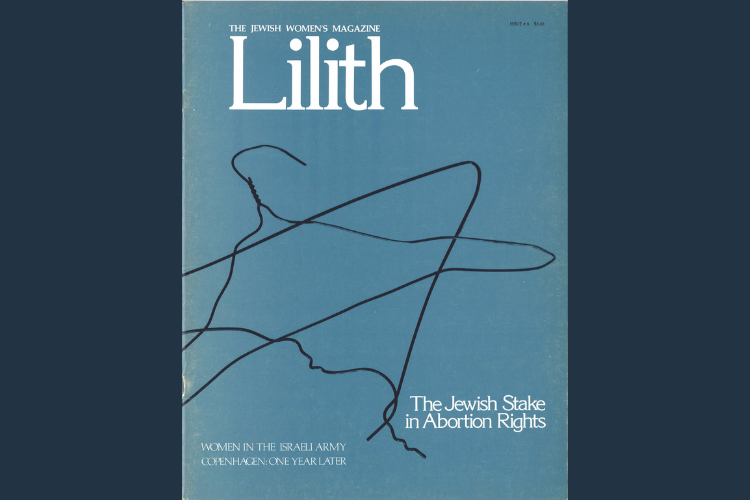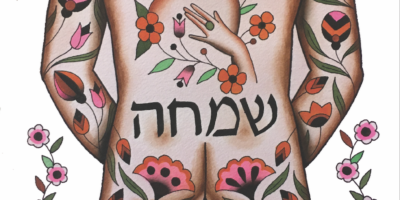
Jewish Law and Abortion
Today when we think about faith and reproductive rights, it’s easy to begin with the idea that religious groups oppose abortion. The modern anti-abortion movement, after all, arose as a coalition between conservative evangelicals and conservative Catholics.
But as Lilith has chronicled for decades, the Jewish stance is more complex, with roots in the Book of Exodus, where feticide is not treated as murder. The Talmud, where much of Jewish law is interpreted and where practice is hashed out, defines life as beginning when the baby’s head emerges from the mother’s body. Even in the once male-dominated rabbinate, the question of whose life takes precedence is clear.
“The principle in Jewish law is tza’ar gufah kadim, that her welfare is primary,” wrote Rabbi David M. Feldman for the Conservative movement of Judaism back in 1983, referring to the pregnant person. “The fetus is unknown, future, potential, part of the ‘secrets of God’; the mother is known, present, alive and asking for compassion.”
Her welfare is primary. In Jewish tradition, the pregnant person’s needs are central to the moral equation.
One of the core principles of Judaism is pikuach nefesh: the preservation of life above all else, even Shabbat observance, which is otherwise sacrosanct. What could be more worthy than focusing on the need for the pregnant person, if suffering, to end that suffering, to live and contribute to the world? It is her life, her soul—“present, alive and asking for compassion,” as Rabbi Feldman put it—that is more worth saving.
We are far from the only religion to take a nuanced stance on abortion. But a religious group that dictates a sweeping, intractable view of right and wrong when it comes to abortion may have an easier time getting attention than, for instance, the religious organizations that recently filed an amicus brief to the Supreme Court, asking fervently for careful, circumstance-based consideration in the upcoming abortion case out of Mississippi.
And so a number of Jews are starting to make noise to rectify this imbalance. A new campaign called 73Forward, led by the National Council of Jewish Women, is gathering activists from secular to Orthodox to defend abortion access from an explicitly Jewish perspective. Rabbis have pledged to join the fight in Texas.
Feminist organizing has always attracted Jewish participation, while within our communal world, groups like the N.C.J.W. and publications like Lilith (organizations where I worked and now work, respectively) have carried the abortion rights banner for many years. But what is notable today are the particular ways Jews are organizing as Jews.
Gen Z and millennial Jewish leaders also point to the reproductive justice movement led by women of color—which connects abortion to racial, economic and social inequality—as the beacon for their own activism. This holistic framework has inspired Jews to fight for abortion access as a crucial part of repairing the world, or tikkun olam, a value that has animated Jewish activism for decades. Many Jewish feminists say they now feel called to support abortion access for those who need it the most, while reminding the country that our own religious freedom is at stake.
Excerpt from “Not All Religious People Oppose Abortion,” originally published in the New York Times, November 18, 2021.




